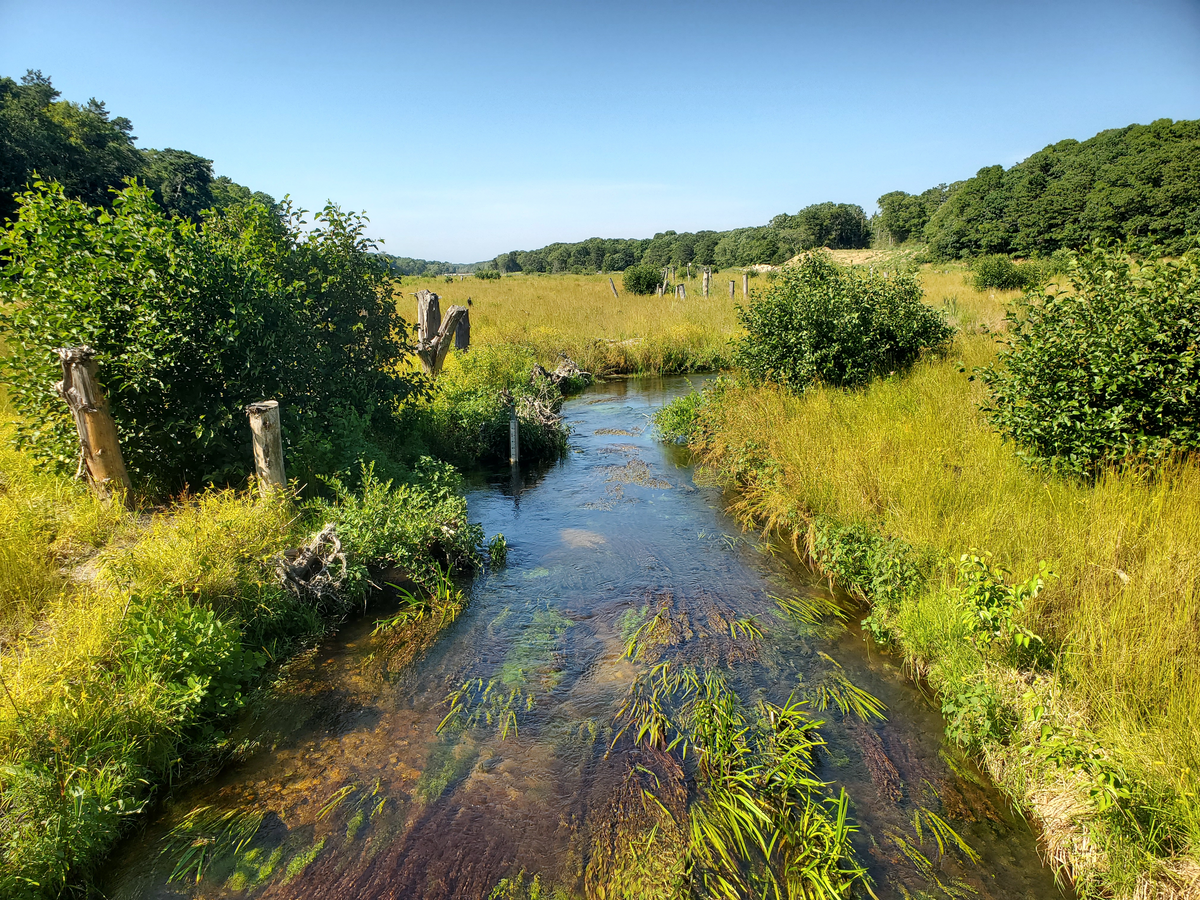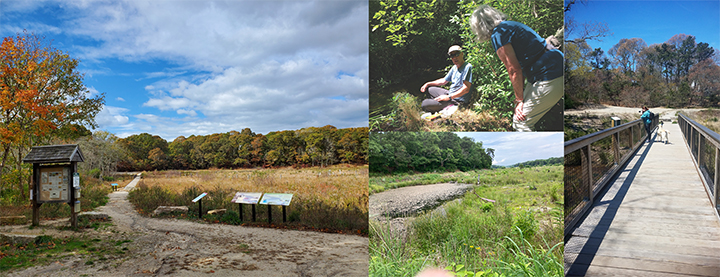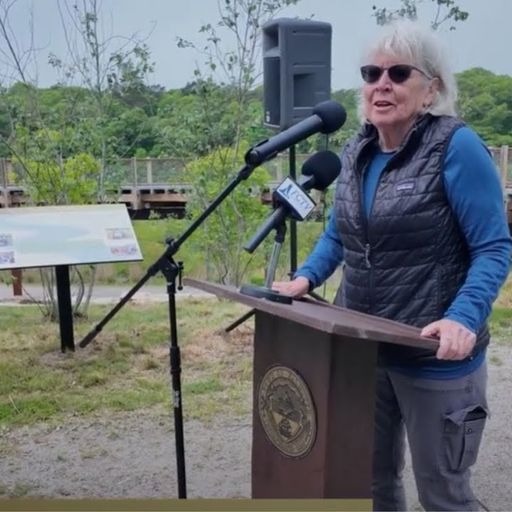Coonamessett River Restoration Project
The Coonamessett River, the third largest groundwater fed stream on Cape Cod, flows approximately three miles from Coonamessett Pond to the Great Pond estuary and farther out into Vineyard Sound. One of the Spring Sapping valleys of Falmouth, the river formed ~15,000 years ago during the last glacial retreat. In colonial times, the hydrology and water chemistry of the valley changed due to a succession of grist and woolen mills, the construction of cranberry bogs, and most recently, residential development. The lower one mile of river and River Herring, the diadromous fish who use the river to migrate to and from their spawning habitats, encountered 3 structural barriers in addition to the sand, ditches, and berms of the former cranberry operations, the Lower bog Dam, Middle Berm, and the John Parker Road culvert.
In an effort to combat the decline of the river’s aquatic habitat and increase successful River Herring migration, concerned citizens together with public and non-profit organizations began to lobby and promote conservation of land on both sides of the river. The Town of Falmouth purchased the lower river bogs (Lower, Middle and Upper Bogs) in 1971 and leased the bogs for cranberry cultivation. In the early 2000s, the 300 Committee, the town’s land trust, purchased (or helped the Town of Falmouth purchase) additional land that bordered the river along the entire three-mile length, creating the Coonamessett Greenway, where, Coonamessett River Heritage Trail is located. In parallel, the Coonamessett River Trust (CRT) provided biological and chemical monitoring of the river system which continues today. In 2009, the Town partnered with Massachusetts Fish and Game’s Division of Ecological Restoration (DER) to make the restoration of the Coonamessett River a DER priority wetland restoration project. An express goal of the restoration was to ensure safe passage for American Eel, River Herring, and Brook Trout.
From 2009-2015 the Town obtained small grants from Fish America Foundation and the Massachusetts Environmental Trust to support the planning process. In 2016, the Town received a large grant from the National Oceanographic and Atmospheric Administration (NOAA) to begin implementing the wetland restoration.
The wetland restoration project was realized in two phases. Phase 1 was completed in 2018, and included the removal of the Lower Bog dam, the reconstruction of the river channel, the restoration of 17 acres of wetland, and the installation of a boardwalk and bridge. Phase 2, completed in 2020, included the removal of the Middle Bog dam, installation of a public access boardwalk, and restoration of 39 acres of wetland across the former cranberry farm growing surface. This phase of the restoration was funded by NOAA, an MVP grant, DER (and USFWS), NRCS and CPA and included the replacement of three failing culverts under John Parker Road with a bridge which will allow migratory fish to access their upstream habitat, including the 158-acre Coonamessett Pond.
The Coonamessett Wetland Restoration was developed with the intent of supporting the needs of the community and public engagement with the land. The establishment of a naturalized, self-sustaining river system provides long-term climate adaptation benefits. Replacement of undersized failing culverts improved the road system. In parallel, the Town took advantage of opportunities for people of all ages to enjoy the restored landscape and learn about nature. In 2018, the Coonamessett River Heritage Trail was established to provide a network of public walking trails, viewing platforms, and outstanding interpretive signage that allows visitors to better appreciate the river, its history, and the benefits accrued to people and wildlife from its restoration. The restored river system provides free passage for migrating river herring and allows the CRT to expand its “Adopt-A-Herring” program as well as its programs for natural history and wetland science for all the 4th and 5th graders in the Falmouth Public Schools.
Phase 3 - 2025 Upper Coonamesset River Wetlands Complex was completed in 2025 as a separate restoration project.



